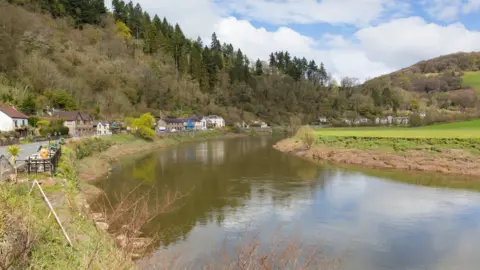Welsh Water boss defends pollution record and six-figure salary
 Getty Images
Getty ImagesThe head of Welsh Water has defended the company's record on pollution and his six-figure salary.
MPs have been told five of nine Welsh rivers designated as Special Areas of Conservation were failing on phosphorus levels and excessive nutrients.
Peter Perry accepted "to a certain extent" that Wales was not where it should be on water quality.
"We don't get out of bed every day thinking we're happy about pollution, far from it," he said.
"The people in this organisation, and I get a sense in government and regulation, are looking to make things better."
Mr Perry said 41% of rivers in Wales are of good status under the Water Framework Directive, compared with 14% in England.
He also said 80% of coastal bathing waters around Wales met the classification of "excellent" while all are classified as "good".
"There's always room for improvement and that's what our job is to do, but I do think it's worth starting off with the facts," Mr Perry told BBC Radio Wales' Sunday Supplement.
"They're actually in some of the best conditions in comparison to other parts of the UK."
He went on to defend his salary of £332,000 in 2022, plus pension contributions and bonus payments.
"My pay is not determined by me, it's not influenced by me.
"I do get the fact that I'm well paid - I'm not going to try and deny that.
"I'm pretty much the lowest paid of my equivalence in England and Wales."
Natural Resources Wales has warned that without drastic action, many rivers could have no salmon left within 20 years.
Mr Perry said Welsh Water was investing just under £80m to reduce phosphate in the River Wye.
"By 2026 all the major phosphate pollution loads from Welsh Water assets will have been dealt with," he said.
But he conceded that "in principle" it was right to say that others could still be pumping phosphates into the Wye.
He added there was not one single sector that is to blame for pollution in rivers.
"It's going to need a multi-sector approach," he added.